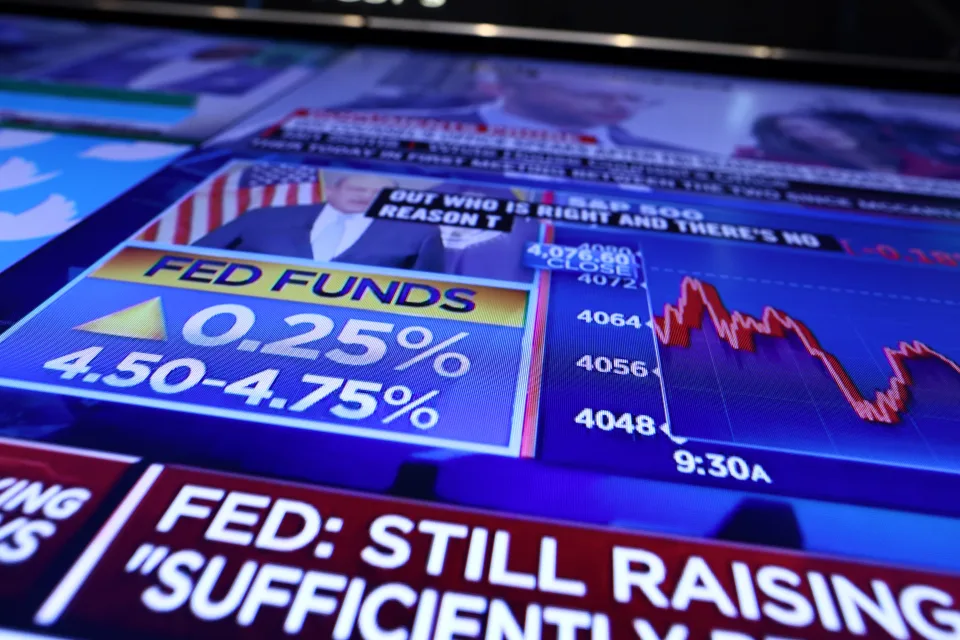
The 2023 stock market rally is under pressure.
Inflation data last week that topped expectations — as well as a continued drop in optimism the Federal Reserve’s rate hikes will end sooner rather than later — pressured the major indexes with the Dow logging a fourth-straight losing week and the S&P 500 and Nasdaq suffering their worst weeks of the year, losing 2.7% and 3.4%, respectively. The Dow endured its worst weekly performance since Sept. 2022.
In the week ahead, investors will remain keyed in on the retail sector, with results from Target (TGT) in focus after rival Walmart (WMT) issued a warning on the state of U.S. consumers last week.
On the economic data side, a crowded calendar of reports from the housing and manufacturing sectors — two areas of the economy which have most reflected the impact of policy tightening — is on tap along with a key measure of consumer confidence.
On Friday, the Personal Consumption Expenditures (PCE) price index — the Fed’s preferred assessment of how quickly prices are rising across the economy — showed prices rose 0.6% during the month of January and 5.4% over last year. On a “core” basis, which strips out volatile food and energy components, prices rose 0.6% for the month and at an annual clip of 4.7%.
The week marked a turning point in sentiment around inflation expectations and the path forward for interest rates.
The hotter-than-expected PCE index followed upside surprises to inflation this year from the Consumer Price Index (CPI) and producer prices, which showed the largest increases in several months to start the year.
“The bear market rally that began in October from reasonable prices and low expectations has morphed into a speculative frenzy based on a Fed pause/pivot that isn’t coming,” Morgan Stanley’s top strategist Mike Wilson said in a note to clients last week.
Wilson’s forecast sees the S&P 500 bottoming out at 3,000 this year. On Friday, the benchmark U.S. equity index closed at 3,970.
“Investor optimism had already been hit by a slow puncture this week but it’s deflating more rapidly as the latest data indicates that the work in taming inflation is far from over,” Susannah Streeter, head of money and markets at Hargreaves Lansdown, said in a note.
Standout economic data releases in the week ahead include the S&P CoreLogic Case-Shiller Home Price Index, ISM’s manufacturing PMI, and The Conference Board’s consumer confidence reading for February.
On the corporate side, Target will release its fourth-quarter earnings results before market open on Tuesday with results from Costco (COST), Macy’s (M), Dollar Tree (DLTR), and Kohl’s (KSS) also featuring on the retail side.
Last week, Walmart’s CFO John David Rainey said the “consumer is still very pressured, and if you look at economic indicators, balance sheets are running thinner and savings rates are declining relative to previous periods.”
“We expect Target’s results will look similar to Walmart’s, with better-than-expected sales, more gross margin pressure than predicted, and solid opex leverage in the store,” Jefferies analyst Corey Tarlowe said in a note. Tarlowe warned, however, Target is not “immune to consumer spending trends shifting to the more needs-based items and away from higher-priced and higher-margin discretionary categories.”
Elsewhere on the earnings calendar, notable reports include Occidental Petroleum (OXY), Zoom Video (ZM), AMC Entertainment (AMC), Rivian Automotive (RIVN), and Dell (DELL) among others.






















